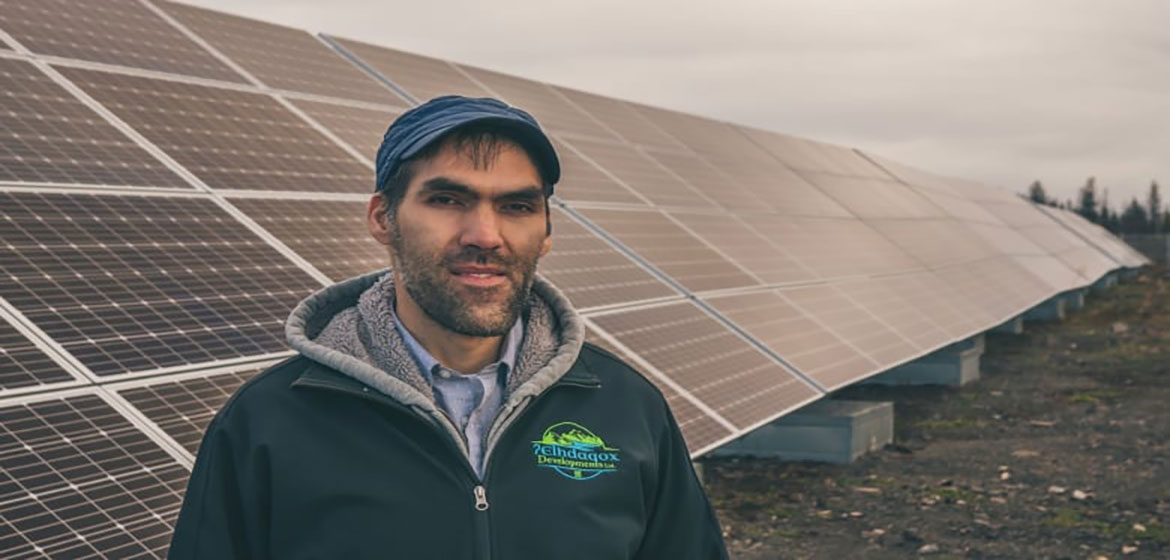Tsilhqot'in project has capacity to power 130-150 homes, help lower cost of living in remote community
By The Canadian Press
The chief of a small First Nations community in British Columbia's Interior says he expects the power to go on any day now for what will be among the first solar farms 100 per cent owned and operated by a First Nation in the province.
Chief Russell Myers Ross of the Yunesit'in in the Chilcotin region west of Williams Lake says the 1.25-megawatt hours per year project is also among the largest operational solar farms in the province.
The community began pursuing the project because the cost of living is so high in the remote community and members saw it as an opportunity to generate income while moving toward the goal of self-sufficiency, he said in an interview Sunday.
"We were trying to find ways to build out community infrastructure and supplement any higher costs with clean energy," Ross said.
The Yunesit'in, which has about 250 members living locally and another 200 registered outside the community, is one of six communities that comprise the larger Tsilhqot'in Nation.
The Tsilhqot'in solar farm consists of 3,456 solar modules that will convert the sun's rays into electricity, which will then be sold to BC Hydro to generate revenue shared by each of the member nations.
With capacity to generate enough energy to power between 130 and 150 homes, it's small on a global scale but large for British Columbia.
The project is comparable to the SunMine solar farm in Kimberley, B.C., which calls itself the province's largest solar project, with 4,032 solar-cell modules.
In 2018, the Upper Nicola Band announced plans for a much larger project near Merritt, B.C., that would generate 15 megawatt hours of electricity.
'Almost all First Nation-built'
Other First Nations have tackled solar on a much smaller scale. The T'Sou-ke Nation on Vancouver Island initiated a 75-kilowatt project in 2007, for example.
But the Tsilhqot'in believe that it's the first solar farm of its size to be fully owned and operated by a First Nation. Ross notes that even the construction phase was almost entirely completed by members of the community.
"It was almost all First Nation-built, which is a feat in itself," he said.
Beyond creating local jobs and giving community members a sense of ownership over the solar farm, the fact that it is an Indigenous project also means it qualified for additional grants and funding.
Ultimately, about $2.3 million of the project's $2.6 million construction budget was covered, which means it will be generating profits in a much shorter time frame than initially expected, Ross said.
Significant hurdles
In the five years since Ross first spoke with green-energy manufacturer EcoSmart about the project, it has come with significant hurdles including financing, authorization, training and harsh weather conditions — including a snow storm last year that blew down much of the infrastructure.
"It almost looked like vandals had come in and destroyed the place," Ross said.
But it is finally almost complete. Ths Tsilhqot'in announced the grand opening of the project in October and Ross said power will start flowing into the grid when BC Hydro completes the hookup.
"I feel pretty good that after five years the project is finished," he said.
Source:
Related to SDG 7: Affordable and clean energy



